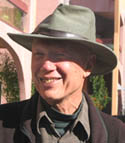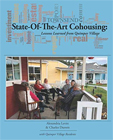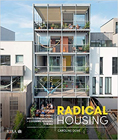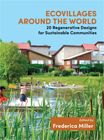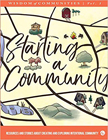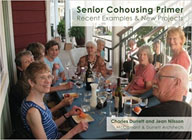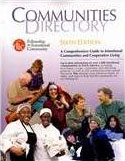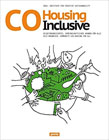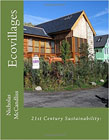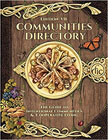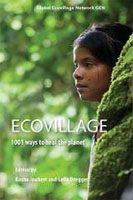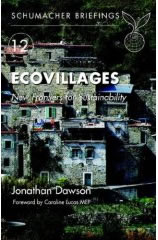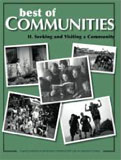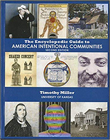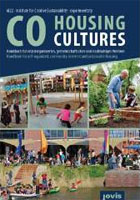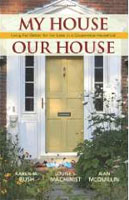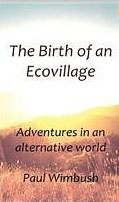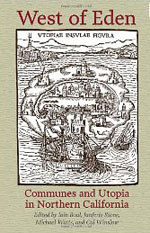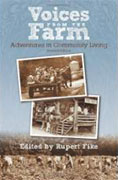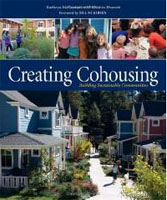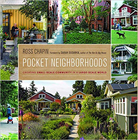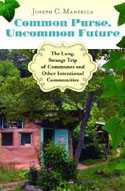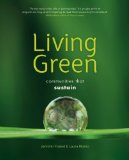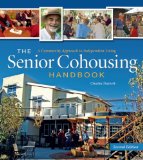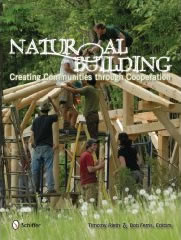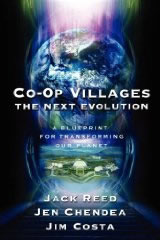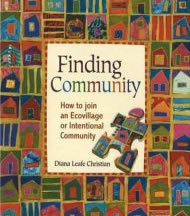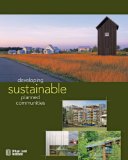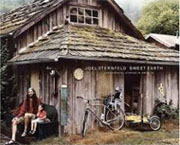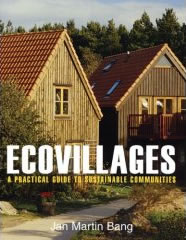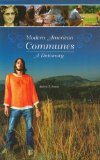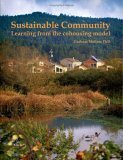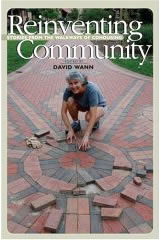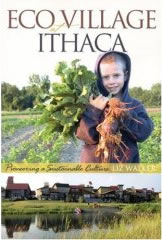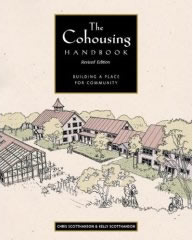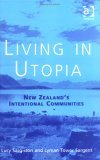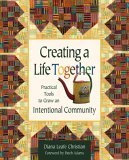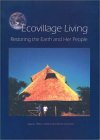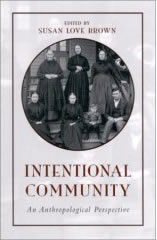Share Facilities
through Intentional Communities,
Eco-Villages, Cohousing
A basic tenet of sustainability is to share what you have with others. Doing this can diminish the need for unnecessary duplication of facilities. In this way a group of people can not only have fewer tools or appliances or functional areas, but at the same time they can have available a greater variety of these facilities. This benefits both the environment (through less industrial activity) and the individual (by providing more options for living.)
Architecturally, a prime example of sharing facilities is what is known as co-housing. With this, a group of people agree to live in a housing situation that is designed so that each family unit has their own basic living accommodations, which are private, but then there are other facilities used in common. For instance, each family might have their own bedrooms, bathrooms, living room and small kitchenette, and then all of the residents might share the use of laundry facilities, meeting room, recreation room, swimming pool, a large kitchen and workshop.
Other modes of living in a cooperative group are intentional communities or communes and eco-villages. Any living arrangement where people share facilities can be beneficial.
There is a social benefit to living in community that is often of considerable appeal to the residents. With the changing make-up of our society, the single-family unit no longer defines how many of us choose to live. People often prefer to be solitary, or at least find themselves in this condition, and becoming part of a larger group can give them a sense of belonging, without the extreme intimacy of marriage.
With co-housing and other community arangements there is often the added advantage of the preservation of open space around the development. The greater density of housing can mean less impact on the environment. Here we have a winning situation for both the residents and the earth!
The books shown below are arranged according to when they were published, with the most recent ones at the top. If you click on one of the images you will be taken to a page at Amazon.com where you can find out more about the book. If you end up buying one of them, greenhomebuilding.com will receive a small commission that will help cover the cost of maintaining this website. Thanks for your patronage.
Informative Links
cohousing.org The Cohousing Association of the United States lists locations of cohousing projects, frequently asked questions, web tours, news and events, and other resources, including a free magazine
CooperativeLivingCommunities.org has profiles to match people interested in coliving or joining or creating a residential intentional community; it also offers lists of consultants, grant opportunities, and much more...
cohousing.ca The Canadian Cohousing Network has a directory of cohousing projects, a newsletter, frequently asked questions, and many other resources.
cohousing.org.uk The UK Co-housing Network provides a wealth of information about cohousing in the UK.
yulupacoho.com an excellent example (in Santa Rosa, California) of one of the many cohousing projects sprinkled around the world. My sister, Alexandra Hart, and her architect husband, Michael Black, were instrumental in bringing this into being.
sewaneecreek.com describes an intentional community in the Tennessee mountains.
greatdreams.com this is a huge directory of communities and related links to housing, energy efficiency, agriculture, etc.
newearthpioneers.com profiles a variety of eco-villages around the world.
onecommunityranch.org is establishing a community focused on natural building and open source sharing.
ecovillagemexico.com is a lovely rural ecovillage near Puerto Vallarta, Mexico.
ic.org The Foundation for Intentional Community's website
icmatch.org Our focus is helping individuals find each other to create new long-term living situations.
Intentional Communities with Workshops
Dancing Rabbit Ecovillage, Missouri
Earthaven, North Carolina
Emerald Earth, California
The Farm, Tennessee
Huehuecoyotl, Tepoztlan, Mexico
The Lama Foundation, New Mexico
Tierramor: Permaculture and Deep Ecology, Michoacan, Mexico
Lost Valley, Oregon
O.U.R. Ecovillage, British Columbia
Proyecto San Isidro, Tlascala, Mexico
Sirius Community, Massachusettes
White Oak Farm and Educational Center, Oregon
Red Earth Farms, Missouri
The Bosque Village, Michoacan, Mexico
Lotan Center for Creative Ecology, Israel
lowimpact.org, United Kingdom
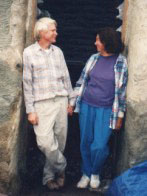
For Email contact go to About Us
Established in 2001, GreenHomeBuilding.com is primarily a labor of love. Kelly, and the GreenHomeBuilding team of experts, have answered thousands of questions for readers over the years, and we continue to publish up-to-date information about increasingly important sustainable architecture. If you feel moved to assist us in this work, your kind donation would be much appreciated; this can be easily done through our PayPal account:

VISIT OUR OTHER WEBSITES:
[Natural Building Blog] [Earthbag Building] [Dream Green Homes]
Disclaimer Of Liability And Warranty
I specifically disclaim any warranty, either expressed or implied, concerning the information on these pages. Neither I nor any of the advisor/consultants associated with this site will have liability for loss, damage, or injury, resulting from the use of any information found on this, or any other page at this site. Kelly Hart, Hartworks LLC.


